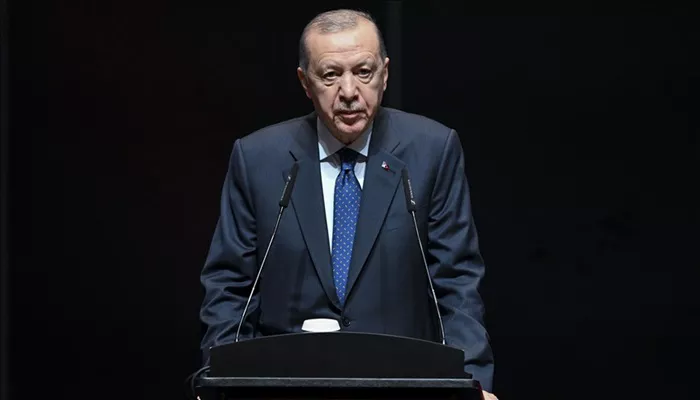Turkish President Recep Tayyip Erdogan has estimated the financial toll of Israel’s destruction in Gaza at $100 billion, asserting that this burden rests squarely on the Israeli government’s shoulders, particularly Prime Minister Benjamin Netanyahu’s administration, which he holds responsible for the ongoing 15-month conflict in the region.
Speaking alongside Malaysian Prime Minister Anwar Ibrahim at the Türkiye-Malaysia Strategic Cooperation in the New Century meeting in Kuala Lumpur, Erdogan emphasized that the Israeli government should be held accountable for the devastation it has caused. “The Israeli administration must first face charges for the destruction in Gaza. Only then can the process of rebuilding begin,” Erdogan said during his official visit to Malaysia.
Erdogan also criticized Netanyahu, urging him to focus on securing funds to address the $100 billion in damage rather than displacing Palestinians from their land. “Instead of looking for a place for Gazans, Netanyahu should look for resources to rebuild Gaza,” he remarked.
The Turkish president expressed confidence that Gaza could recover quickly, provided that the funds needed for reconstruction—money that is rightfully owed to the people of Gaza—are collected from Israel. He further called for the return of Palestinian lands and properties seized by the Israeli state and settlers.
Erdogan also referenced the historical trauma of the 1948 Nakba, where Palestinians were forcibly displaced from their homes, declaring, “No one will be able to inflict a second Nakba on the Palestinian people.”
Emphasizing his long-standing support for the Palestinian cause, Erdogan reiterated his commitment to a two-state solution, advocating for the establishment of an independent Palestinian state with East Jerusalem as its capital. “It is our duty of brotherhood and a debt of conscience to the oppressed Palestinian people,” he said.
The ceasefire and prisoner exchange deal that began on January 19, following Israel’s 15-month military campaign, marked a significant turning point after over 48,000 Palestinians lost their lives, and Gaza was left in ruins. Erdogan commended Malaysia’s unwavering support for Palestine, highlighting its firm stance against Islamophobia.
As part of his broader international relations strategy, Erdogan stressed the need for a new global order to address global challenges, including issues such as trade, security, and diplomacy. “From the economy to diplomacy, from trade to security, we need a new approach and a new global order to solve problems,” he stated.
Erdogan also took the opportunity to acknowledge the milestone of the 60th anniversary of diplomatic relations between Türkiye and Malaysia. He expressed hopes that the bilateral relationship would continue to flourish, particularly as trade volume between the two nations exceeded $5 billion in 2024, with plans to increase it to $10 billion.
Looking ahead, Erdogan outlined ambitions to expand cooperation in sectors such as semiconductor technology, automotive manufacturing, and aerospace. He also emphasized the importance of strengthening air travel connections between the two countries, noting that both Türkiye and Malaysia serve as gateways between Asia and Europe.
In the defense sector, Erdogan highlighted the ongoing collaboration between Turkish and Malaysian industries, such as the construction of coastal duty ships and the shared use of Turkish-designed ANKA drones.
Erdogan also addressed Türkiye’s vision for a fairer world order, challenging the post-World War II global governance system. He argued that the current international structure, which excludes vast populations—including the Islamic world—fails to distribute justice or promote global peace. “A structure that excludes a quarter of the world’s population cannot be expected to provide security or promote stability,” Erdogan concluded.
According to the Turkish president, a more inclusive and fair world order is not only possible but necessary. Despite resistance from the privileged few benefiting from the current system, he believes a more just global framework is essential for resolving today’s global challenges.
Related topics:
- India Surpasses China in Gold Purchases, Buying 51% More in Three Months
- Gold Rates Skyrocket in Chennai on Diwali, 24K Gold Exceeds Rs. 81,000 Per 10 Grams
- New Zealand Seeks Stable Trade Relations with U.S. Despite Tariff Concerns


